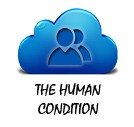 |
||
   
Balancing Act: The Newsletter (No. 236, April 2019) BALANCING ACT: BLENDING LIFE, WORK, AND RELATIONSHIPS® Balancing Act® is our registered trademark. You are encouraged to share the contents with others with appropriate attribution. Please use the ® whenever the phrase "Balancing Act" is used in connection with this newsletter or our workshops. Balancing act is in four sections this month: 1. Why Is It? 2. Musings 3. The Human Condition: Appropriateness 4. ORTIYKMWOYBNTO Department Connect with me on Facebook, Twitter and LinkedIn. Free consulting newsletter: The Million Dollar Consulting® Mindset. Listen to my new, free Podcast Series on iTunes or on AlanWeiss.com: The Uncomfortable Truth. We are now on a WEEKLY schedule!  • People wait for a clerk to ring up their purchase, and only then begin to search for their money as if surprised there’s a charge? • We receive a shot of adrenaline when we are driving and suddenly see a police car even though we’re doing nothing wrong? • Some believe that “between you and I” sounds elegant when it actually sounds ignorant? • Despite overwhelming evidence that vaccinations are safe, some parents still put their children and many others at risk by declining it? • The government rewards agencies that spend their entire budget but penalizes agencies that have a surplus by not providing that level of funding again? What do you think that encourages? • People continue to apply their own metrics to others, and too often others accept them and feel they’re failing? • So very few believe “network marketing” is simply a ponzi scheme contributing zero to the members or the community? • New housing developments knock down all the trees which, if left in place and worked around, could provide some character and distinction? • No financial analyst or prognosticator in any medium in any business is ever held to his or her predictions for the coming year at the end of that year? • Everyone’s communications are so important that they have to call or text all during the day? Are they all brain surgeons on call? • Local TV stations have four reporters in the field and five “meteorologists” in the studio? • I received a drug prescription that stated, “Take one each day for 14 days” and the package said, “Content: 12”?  We have a regular UPS guy who’s terrific. The other day when our driveway was plowed wide enough for my cars but not his truck, he left my packages on our wall 150 yards away wrapped in plastic with a note that he was sorry he couldn’t make it down the driveway. When he first met Bentley years ago, the dog flattened his ears, bared his teeth and made a run for him in front of the house. Phlegmatic, the driver pulled out a dog biscuit and tossed it in the air. Bentley immediately changed his demeanor. Today, they have a regimen: Bentley runs like a crazy dog down the steps barking, the UPS guy yells, “Bentley, sit!” and Bentley comes to a full stop and waits for the biscuit. (Puppy pulls up behind him and gets hers.) Once upon a time, Buddy Beagle actually jumped in the UPS truck, figuring, no doubt, that it was a biscuit delivery truck and why not go after the mother lode? Dogs readily adjust their behaviors. While I get myself cleaned up and dressed in the morning, the dogs don’t move until they see me reach for my keys on my vanity, then they hustle to the door to go out. If it’s wet outside, they know they have to come in through the garage side door and not the kitchen, and they wait at the appropriate place. To a certain extent, I think we all unconsciously learn and perpetuate certain behaviors. People assume the meeting will be boring and either daydream or surreptitiously work on something else. Parents assume their kids don’t have anything interesting to report from school and may miss some vital information or behavior changes. We unconsciously place the buyer in a superior position to our own and seek acceptance rather than respect. Even when we didn’t enjoy the play, or appreciate the art, or comprehend the song lyrics, we act as if we did because everyone else seems to. I don’t let Bentley out there on his own with a different UPS guy. I tell my granddaughters never to approach a strange dog as they would Bentley, because even another German Shepherd may act very differently and aggressively. We become “conditioned” to a specific which isn’t necessarily something that can be generalized. I try not to make assumptions about people, but rather use empirical evidence. I resent it when someone assumes anything about me because of my age, gender, or color. I try to do the same. Bentley’s behavior with the UPS guy is an example of operant conditioning (reward and punishment), very Skinnerian. We shouldn’t require rewards and punishments to do the right thing, for others and for ourselves.  I watched a woman in first class on an American Airlines flight change her baby’s diaper on the seat as she stood in the aisle. Maybe I’m unduly sensitive, but there is a changing table in the lavatory. I’ve observed as an audience member people who seek to dominate the proceedings—the panel host who thinks he or she is the main attraction, the incessant questioner, the person who breaks in at any juncture to argue or provide the “right” answer (and as a facilitator I’ve often had to shut these people down)—who are oblivious to the presence and needs of others. After a cross-country flight, I’ve waited in the aisle while a gate agent came on board and made two minutes of useless announcements. The best way to welcome us to a city is to let us off the plane to get into the city. I’ve experienced people giving advice or the dread “feedback” when they weren’t asked, didn’t have the perspective or experience to provide it, and weren’t being at all constructive. In other words, I’ve found that neither wealth, nor environment, nor the needs of others tend to dissuade some people from making completely inappropriate choices. I believe this level of self-absorption is purely narcissistic in that it blithely disregards any attempt to measure the appropriateness of the behavior against the circumstances surrounding it. I preach high self-esteem. But like virtually anything done in excess, it can morph into quite dysfunctional behavior and narcissistic acts. Part of civility, or maybe most of it, is about understanding the impact of your behavior on others. In order to do that, you need to stop looking at the constant reflection of your own image.  I disembarked from the train in New York’s Penn Station on a platform I had never seen before. I wandered around looking for an exit to the street to catch a cab. Becoming more and more frustrated, I found two police officers chatting, whom I interrupted. “Can you tell me how on earth to get to the street?” I snapped. “Sure,” one said, nodding to the left with his head, “just follow that sign by the stairs.” “What sign?” I demanded. “The one that says ‘Exit to Street’,” he told me. 
Don't forget to share this on social media: Having problems viewing this email? Click here. © Alan Weiss 2019 |
Balancing Act® is our registered trademark. You are encouraged to share the contents with others with appropriate attribution. Please use the ® whenever the phrase "Balancing Act" is used in connection with this newsletter or our workshops.

If you want to be fearless stop being so afraid. Alan Weiss |
|
